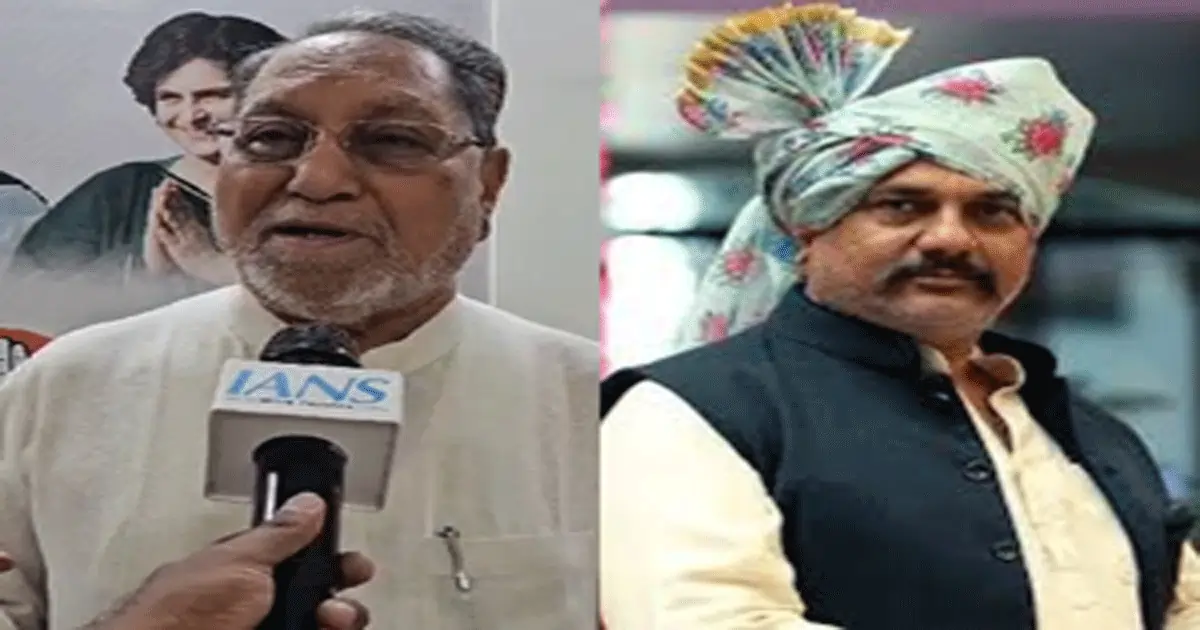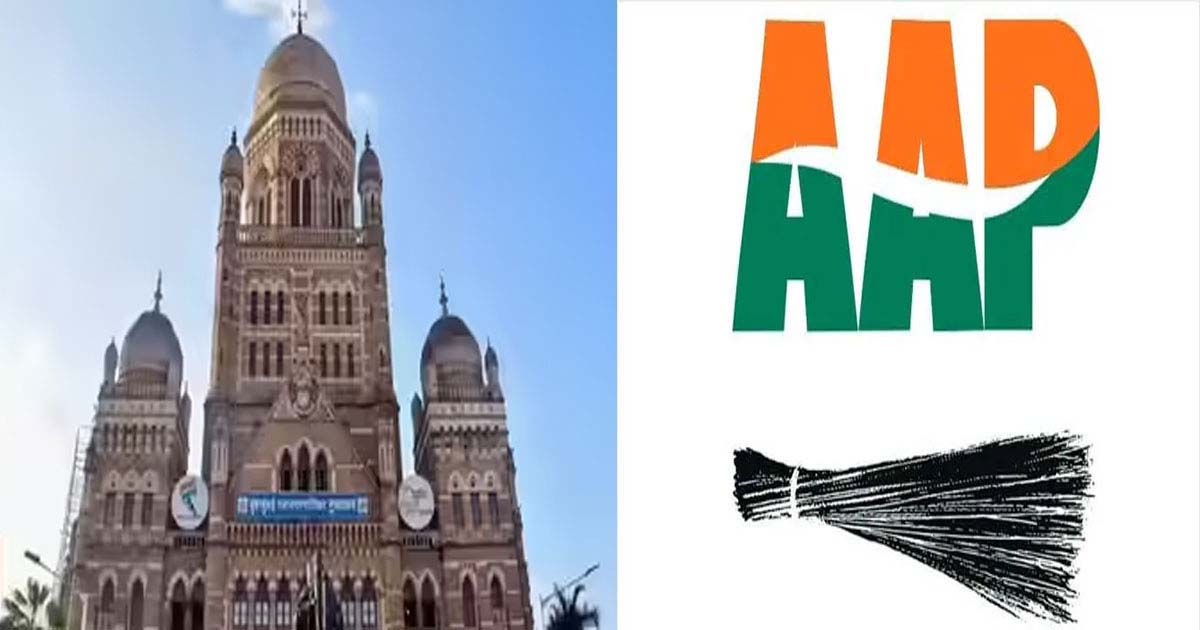Maharashtra
Those afraid of ED have been set aside: Husain Dalwai on Maha Cong getting new chief

New Delhi, Feb 14: The Congress high command has appointed former MLA Harshvardhan Sapkal as the new Maharashtra Congress Committee (MPCC) President, replacing Nana Patole.
Reacting to the decision, senior Congress leader and former MP Husain Dalwai welcomed the move, calling it a “much-needed step” at the right time and remarked that those who are afraid of the ED and other agencies have been set aside.
This leadership change comes two months after the party’s poor performance in the state Assembly elections.
Speaking to media Dalwai said, “It is a very good thing that a decision has finally been made on this long-pending matter. I believe that those who are afraid of the ED and other agencies have been set aside, and a true leader has been given the position. I welcome this decision.”
He further stated that leaders who fear central agencies cannot lead the party, emphasising that a strong and fearless leader like Harshvardhan Sapkal who follows Gandhian principles was needed to revive the Congress in Maharashtra.
“The central leadership has made the right decision. Maharashtra Congress is in bad shape, and we need to fight against this government,” he added.
Sapkal served as an MLA from 2014 to 2019, representing the Buldhana Assembly Constituency in Maharashtra.
Along with the state’s new party chief, the Congress President has also approved the appointment of Vijay Namdevrao Wadettiwar as the leader of the Congress Legislative Party (CLP) in Maharashtra.
The Congress leadership aims to strengthen the party’s presence in Maharashtra, especially after its poor electoral performance. With Sapkal’s appointment, the party hopes to rebuild its base and counter the ruling BJP-Shiv Sena-NCP coalition more effectively.
Maharashtra
After Babri, it’s Kashi Mathura’s turn. Baba Bageshwar Dham’s provocation in Mumbai.

Mumbai: After the Babri Masjid, now it is Kashi Mathura’s turn, the slogan and provocation has been given by Dhirendra Shastri Bageshwar Dham Baba here in Mumbai. While answering the question of journalists in Andheri, Bageshwar Dham said that the temple is ours and we cannot give it up. When Baba was asked that the dispute had ended after the Babri Masjid, then why is the process of finding temples in mosques going on, to which he said that there are temples in many places and the dispute here is old. On Hindu Rashtra, Bageshwar Dham made it clear that there is also room for Muslims in Hindu Rashtra, his aim is to strengthen Sanatan, while a pilgrimage for Hindu Rashtra will start in Maharashtra to promote Hindutva. He said that it is wrong to declare India a secular country because India has never been secular. He said that there is a need for brotherhood and unity in this country and for that he goes on pilgrimage. Baba, while spewing venom, said that if efforts are not made for Hindu Rashtra and Hindus are not united, then the time is not far when the invasion of India will take place. He said that highly educated doctors in the country are becoming terrorists. If there is a Hindu Rashtra, then a Muslim youth will become Abdul Kalam. Will the mayor of Mumbai be a Muslim or a Hindu? On this, Bageshwar Dham said that he is away from politics, so a candidate should be selected who is useful for the people.
Maharashtra
AAP debut in BMC,will contest all 227 seats on it’s own, rules out allianceannounces

Mumbai: (Press release)The Aam Aadmi Party today announced its decision to contest the upcoming BMC General Elections 2026, on its own strength. The youngest national party, ruled out any possibility of an alliance and stated that they will field AAP candidates on all 227 wards.
“Despite being India’s ‘Urbs Prima’, Mumbai is in a mess. BMC has a whopping Rs. 74,447 Crore annual budget- the largest in Asia. Mumbaikars pay the highest taxes in the country and yet get shoddy public services.
The BMC is a cesspool of corruption and monumental ineptitude. BMC schools are shutting down and education quality remains poor, primary health care centres are non-existent, hospitals are overburdened and BEST is being systematically killed and it’s bus fleet has been starkly declining.Some of the world’s most expensive real estate is surrounded by squalor.
Garbage disposal is poor and filth is lying all around and our ecology has degraded with tree cover rapidly depleting. Pollution is at an all time high, Our AQI levels are as high as Delhi, despite us being on the coast and we are the only city in the world which releases untreated sewage in the open sea.
In the name of Dharavi Redevelopment, we are witnessing the biggest land grab in the history of independent India. For the last 4 years, the BMC has been without public representation and our once 90,000 Crore Fixed Deposits, have fallen sharply and reached its nadir.
All of this is nothing but ‘avoidable suffering’ inflicted on Mumbaikars, by a lumpen political class. Every political party has looted Mumbai, prioritising their selfish interests over public good. “, said Preeti Sharma Menon, Mumbai President, Aam Aadmi Party.
“The AAP is not just the alternative but the solution. Few good people in the BMC, is what Mumbai desperately needs. We know how to fix governance, under Arvind Kejriwal and Bhagwant Mann’s leadership, we have done so in Delhi and Punjab, provided world class education, healthcare, water and electricity, without corruption and without debt.
We need the broom, to sweep the corrupt and inept away. With just 7 corporators, AAP will have a house leader and representation on all statutory committees (Standing, Improvement, Health, Education and BEST). When we last contested in 2014 Lok Sabha polls, we got 5.16% of the vote share and over 2,73,000 votes. We will better this feat this time round and are getting tremendous support on the ground.
Mumbai needs AAP. We are India’s youngest National party and will contest on all of Mumbai’s 227 seats on our own strength.”, said Sanjay Singh, MP, Aam Aadmi Party.
Maharashtra
‘BMC Election Not A Family Business’: BJP Secretary Flags Nepotism Concerns Ahead Of Mumbai Civic Polls

Mumbai: Advocate Vivekanand Gupta, a secretary of the Bharatiya Janata Party’s Mumbai unit, has flagged concerns over alleged nepotism in ticket distribution ahead of the Brihanmumbai Municipal Corporation (BMC) elections, urging the party leadership to ensure that the civic polls do not turn into a ‘family business.’ The letter comes amid an internal unease that is brewing within the Bharatiya Janata Party (BJP) ahead of the high-stakes Brihanmumbai Municipal Corporation (BMC) elections.
In his letter, Gupta expressed strong reservations about the practice of issuing civic election tickets to family members of party office bearers, MLAs, and other public representatives. He pointed out that relatives such as wives, sons, daughters, and even grandchildren of influential leaders are often favoured during ticket distribution, sidelining grassroots workers who have served the party for years.
Gupta stressed that candidates for the BMC polls should be selected purely on merit and dedication, and not on the basis of family connections. He argued that the BJP, which prides itself on being a cadre-based organisation, must give priority to loyal karyakartas who have worked consistently at the ground level and contributed to the party’s growth in Mumbai.
The BJP leader also flagged concerns over the alleged misuse of changes in seat reservations. According to Gupta, when wards are converted from general seats to women, OBC, or other reserved categories, the opportunity is often used to accommodate family members of influential leaders rather than deserving party workers. He warned that such practices demoralise long-serving workers who patiently wait for a fair chance to contest elections.
Emphasising that the BJP has been built by the dedication and sacrifices of its workers, Gupta urged the party leadership to resist internal pressure while finalising candidates. He called for transparency, fairness, and a clear commitment to merit-based ticket allocation, adding that loyalty and hard work should be the sole criteria for contesting the civic polls.
Meanwhile, BJP Mumbai president Ameet Satam announced that the party will release its manifesto for the BMC elections in the first week of January 2026. However, it is yet to be decided whether the BJP will unveil a joint manifesto with its ally Shiv Sena. Voting for the much-anticipated BMC elections is scheduled to take place on January 15, with counting of votes slated for January 16.
-

 Crime3 years ago
Crime3 years agoClass 10 student jumps to death in Jaipur
-

 Maharashtra1 year ago
Maharashtra1 year agoMumbai Local Train Update: Central Railway’s New Timetable Comes Into Effect; Check Full List Of Revised Timings & Stations
-

 Maharashtra1 year ago
Maharashtra1 year agoMumbai To Go Toll-Free Tonight! Maharashtra Govt Announces Complete Toll Waiver For Light Motor Vehicles At All 5 Entry Points Of City
-

 Maharashtra1 year ago
Maharashtra1 year agoFalse photo of Imtiaz Jaleel’s rally, exposing the fooling conspiracy
-

 National News1 year ago
National News1 year agoMinistry of Railways rolls out Special Drive 4.0 with focus on digitisation, cleanliness, inclusiveness and grievance redressal
-

 Maharashtra1 year ago
Maharashtra1 year agoMaharashtra Elections 2024: Mumbai Metro & BEST Services Extended Till Midnight On Voting Day
-

 National News1 year ago
National News1 year agoJ&K: 4 Jawans Killed, 28 Injured After Bus Carrying BSF Personnel For Poll Duty Falls Into Gorge In Budgam; Terrifying Visuals Surface
-

 Crime1 year ago
Crime1 year agoBaba Siddique Murder: Mumbai Police Unable To Get Lawrence Bishnoi Custody Due To Home Ministry Order, Says Report












